Theresa May: US and Europe must keep up pressure on Russia
- Published
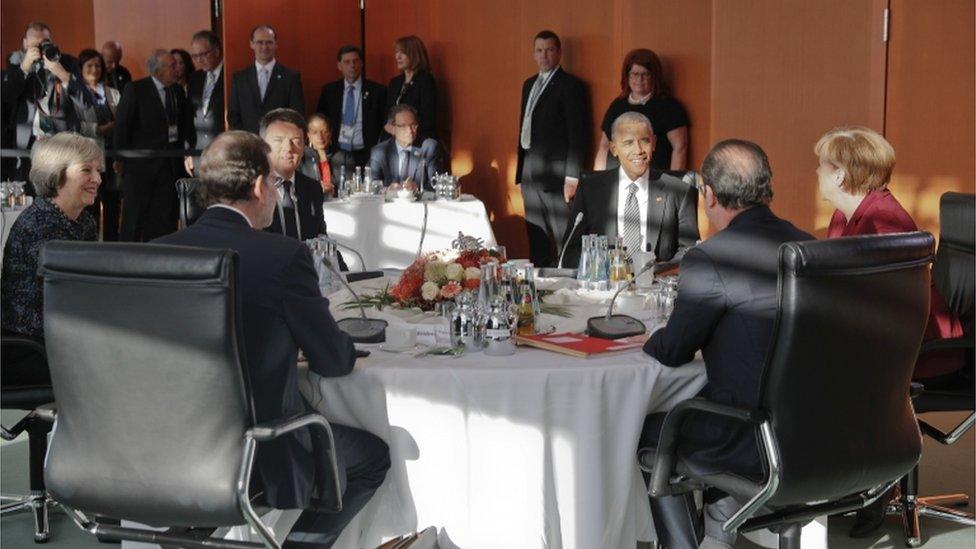
Theresa May has said the US and Europe are "united" in condemning atrocities in Syria and has warned Russia of the possibility of more sanctions.
The UK PM met outgoing US President Barack Obama, German Chancellor Angela Merkel and four other European leaders in Berlin for talks.
Mr Obama urged them to work with his successor Donald Trump on the basis of shared "core values".
The PM also told Mrs Merkel that the UK's Brexit plans were "on track".
It came as the Supreme Court confirmed that Scotland and Wales's top legal advisers would be allowed to take part in an appeal hearing brought by the UK government against a ruling that it alone cannot trigger Article 50 - the formal process of leaving the EU - without a vote by MPs.
But BBC correspondent Jenny Hill said there were a number of issues on the agenda that took precedence over Brexit, including Syria, Russia's relationship with the West, international terrorism and climate change.
In a joint press conference with Chancellor Merkel on Friday, Mrs May said: "On Syria, looking at Aleppo, we are united in our condemnation of the atrocities that are taking place there.
"We agree on the need to keep up the pressure on Russia, including the possibility of sanctions on those who breach international humanitarian law."
US President-elect Mr Trump has criticised Nato and has spoken of his hopes of warmer relations between the US and Russia - but on Thursday Mr Obama warned him to stand up to Moscow if it deviated from US values.
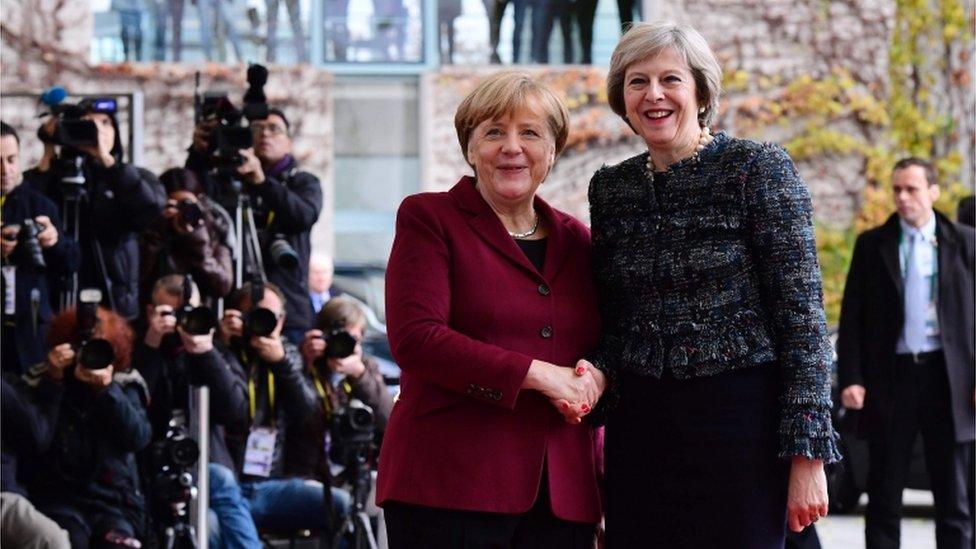
Mr Obama has been on a farewell trip to Europe at the end of his two terms as US president. On Friday he met German Chancellor Angela Merkel, Mrs May, French President Francois Hollande, Italian Prime Minister Matteo Renzi and Spanish PM Mariano Rajoy in Berlin.
The White House said Mr Obama had "affirmed the importance of continued cooperation through multilateral institutions, including Nato" and "agreed on the necessity of working collectively to move the transatlantic agenda forward, particularly on bringing stabilisation to the Middle East and North Africa, as well as securing diplomatic resolution to the conflicts in Syria and eastern Ukraine.
On Brexit, Mrs May said: "Our work is on track, we do stand ready to trigger Article 50 by the end of March 2017.
"I want to see this as a smooth process, an orderly process, working towards a solution that is in the interests of both the UK but also in the interests of our European partners too."
The meeting comes as German Finance Minister Wolfgang Schauble told the Financial Times, external the UK may have to continue paying into EU budgets for more than a decade after it leaves the union.
He said Britain will "certainly have to fulfil its commitments" to the EU until its departure - and possibly after.
He added: "Possibly there will be some commitments that last beyond the exit… even, in part, to 2030."
- Published18 November 2016
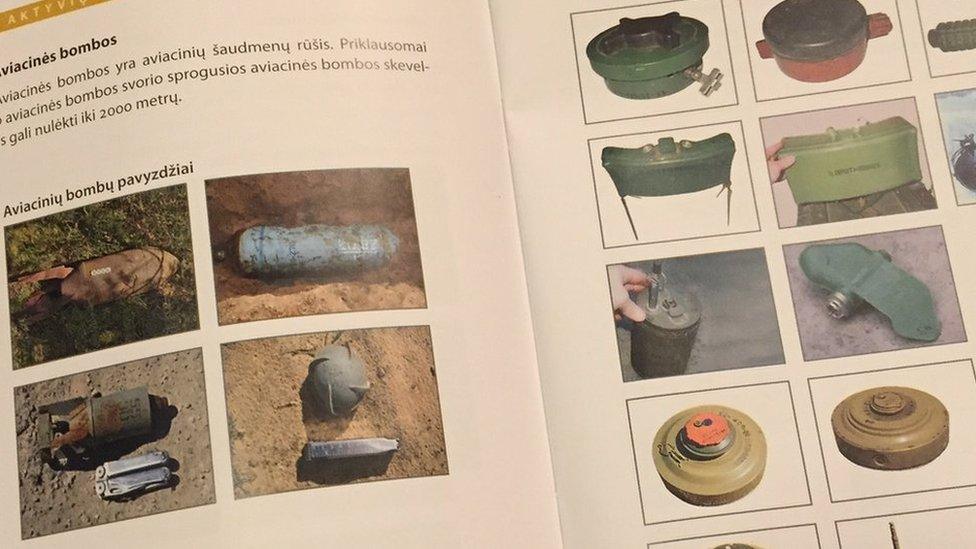
- Published17 November 2016
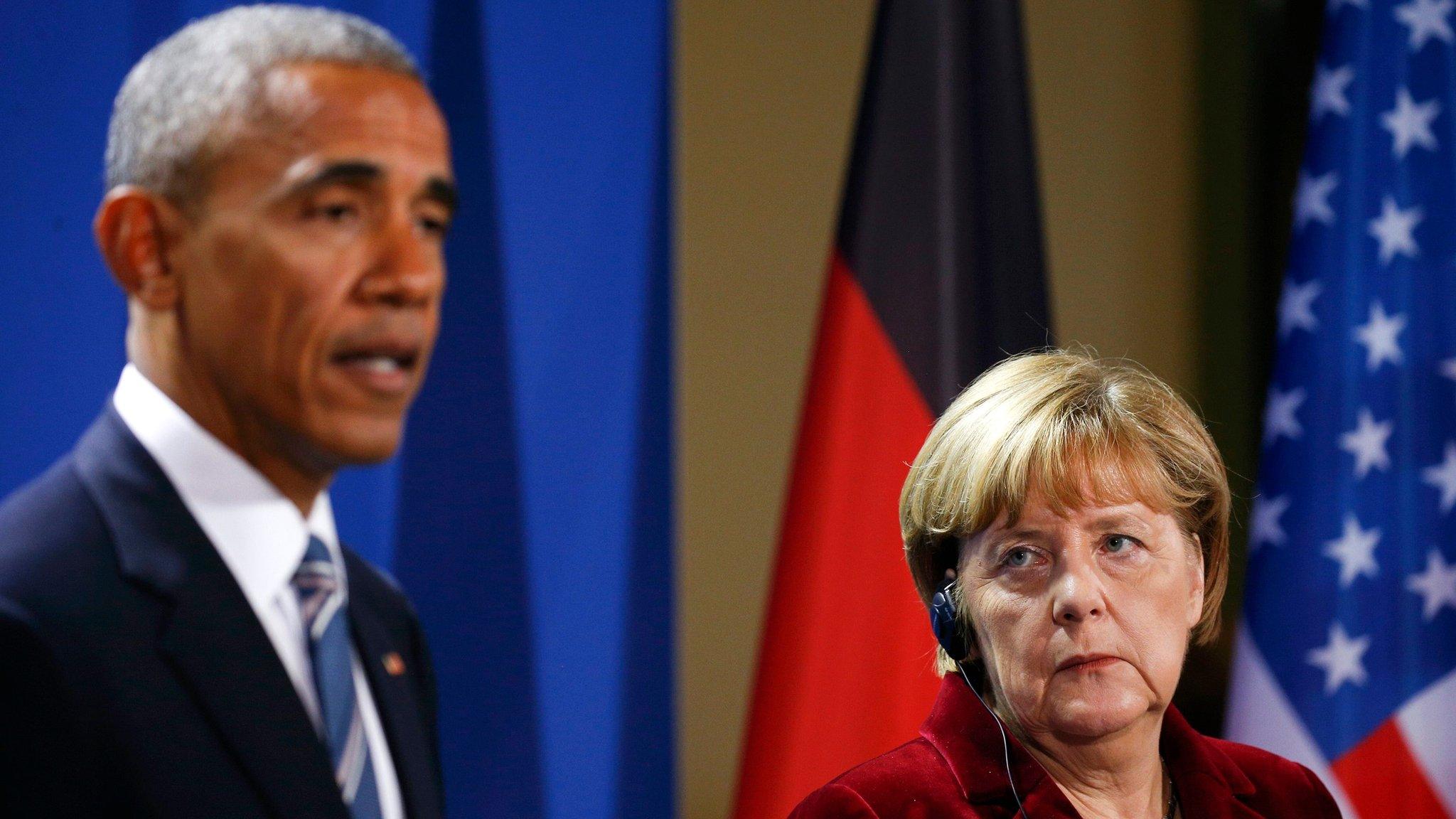
- Published17 November 2016
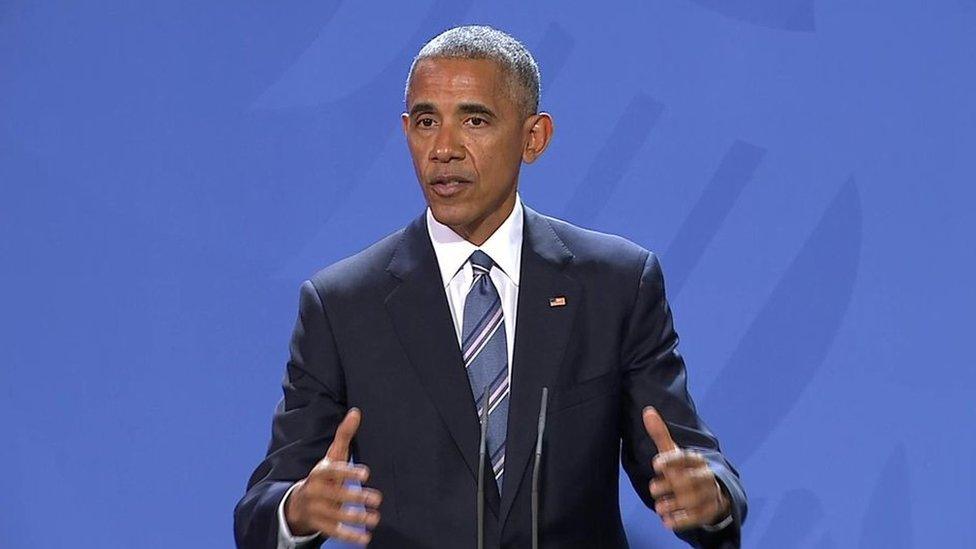
- Published17 November 2016
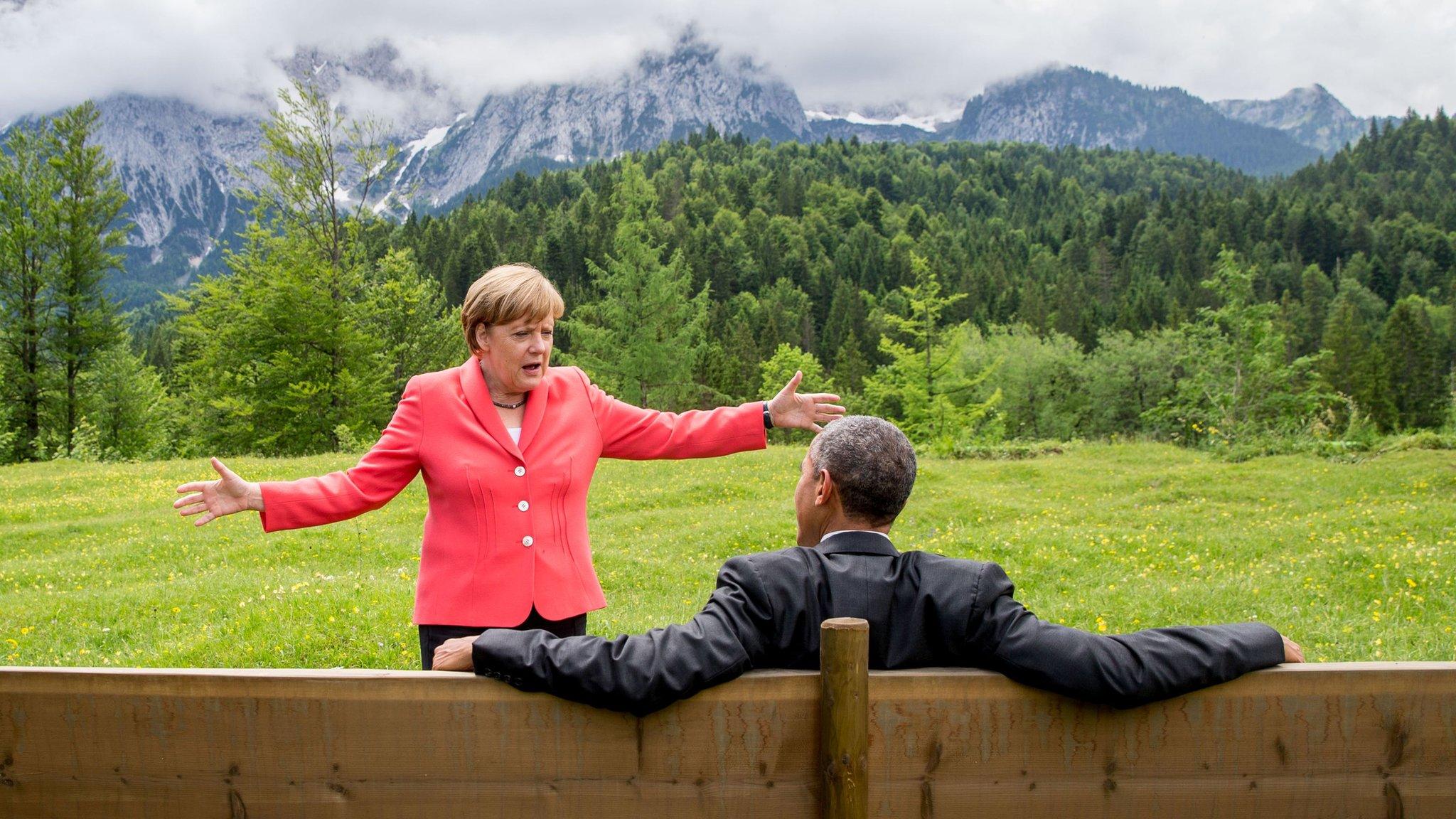
- Published17 November 2016
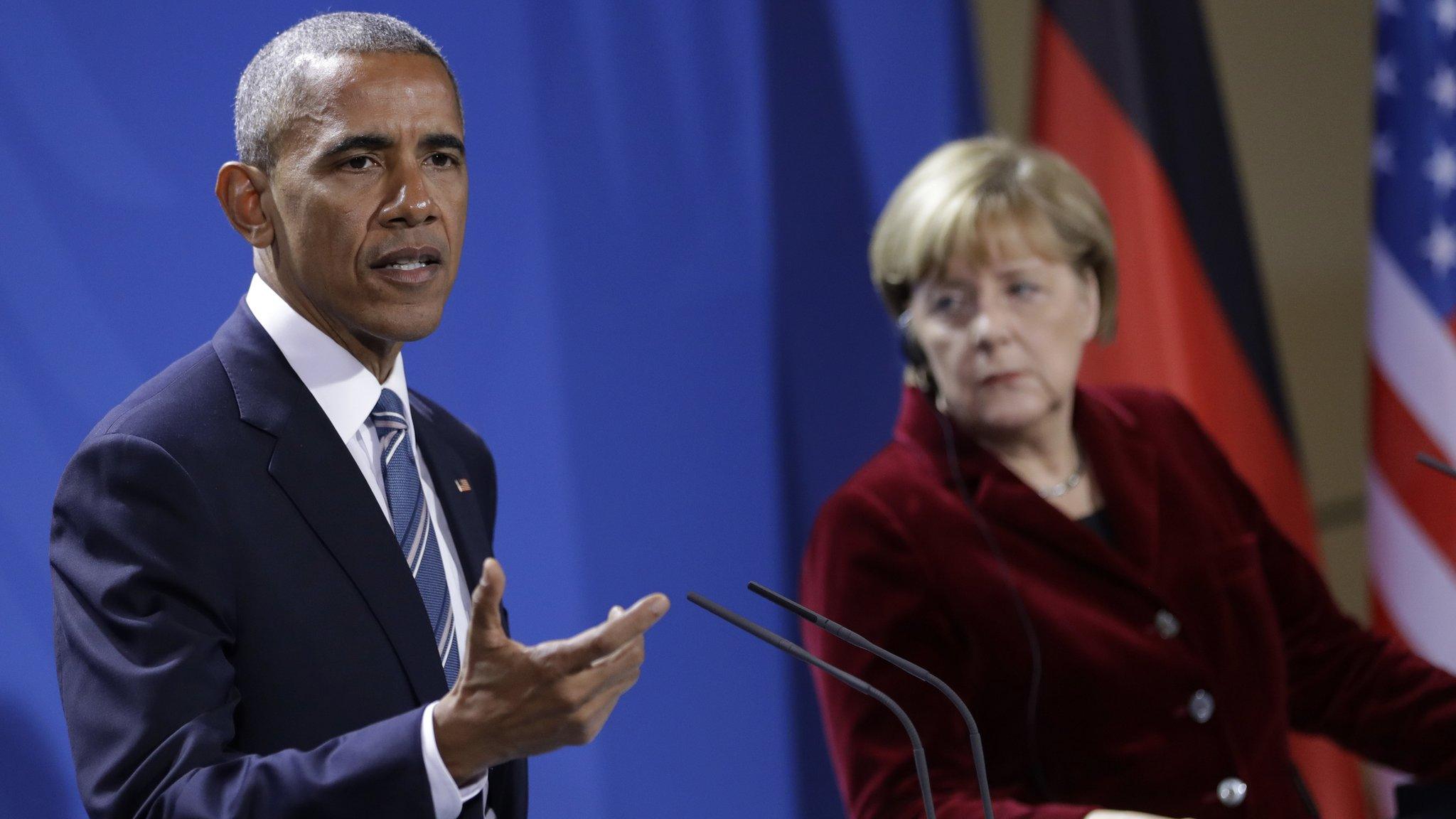
- Published27 October 2016